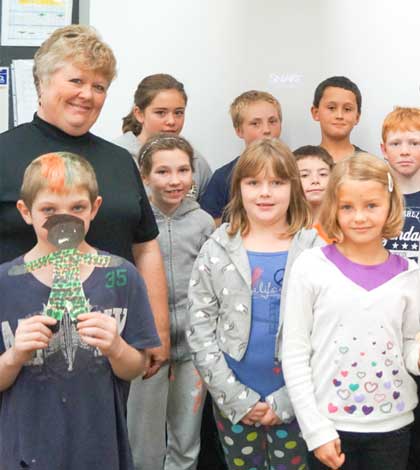M’CHIGEENG—Last month, the United Chiefs and Councils of M’Nidoo Mnising (UCCMM) and Kenjgenwin Teg Education Institute (KTEI) hosted the Third World Canada tour in M’Chigeeng First Nation. The event included the showing of the film ‘Third World Canada’ and a presentation and discussion following the film led by its executive producer, writer and director Andree Cazabon and a youth representative, Faith McKay, from Kitchenuhmaykoosib Inninuwug (KI), where the documentary was filmed.
‘Third World Canada’ looks at the remote aboriginal community of KI and its impoverishment through exploring the aftermath of three suicides in the community and the impact on the children left behind.
“Faith and I are so happy to be here in your territory today,” began Ms. Cazabon. “This film is hard to view, but I hope you will see the main characters’ strength and love for themselves, their children and community. I wanted to make the invisible visible with this film and help Canadians realize what is happening in their country. My goal was to open eyes and show how colonization is hurting all of us.”
“Our past, present and future are all intertwined,” added Ms. Cazabon. “The power of the film lies in the people.”
The film begins by introducing the audience to KI, a remote fly-in community of 1,200 in Northern Ontario.
Within a few months, a mother and her husband commit suicide, leaving eight children orphaned. Some of the children were from the mother’s first marriage who also lost their father years earlier to suicide.
Throughout the film, Ms. Cazabon gives an in-depth look at the profound impact the deaths had on the children, and how in the wake of tragedy and poor living conditions, the community still struggles to come together and help the children.
Startling yet powerful scenes, including when one of the children demonstrates how his father looked when he found him hanging and an interview with another child as she reads her mom’s suicide note, greatly impacted the M’Chigeeng audience.
Following the film, one member of the audience broke down, sharing how he had been struggling with addiction and suicide.
Ms. Cazabon thanked the community member for being brave and introduced Ms. McKay who, she explained, had a similar story.
“When I was growing up I felt I had no hope, I had no feelings besides anger,” began Ms. McKay. “I would steal, do drugs and fight. I felt that there was nothing in the world for me and I thought about killing myself.”
Ms. McKay shared with the audience her powerful battle overcoming depression and drug abuse and how becoming a youth leader in her community changed her life.
She also spoke of a community initiative that herself, other youth leaders and Ms. Cazabon took on, inviting Canadians to visit KI and see the poverty first hand.
“I have come so far and in January I will be attending university to become a journalist,” concluded Ms. McKay.
“Faith and the youth in KI made a difference,” said Ms. Cazabon. “They took away all the obstacles in their way and made a positive change. Now those 43 Canadians that came to KI are writing their MPs, talking to their congregations and board rooms, calling for change.”
“I know some of your young people have suffered too, but they are dreaming of change and need people to listen to them, help them and support them so that they can lead the way, our future,” concluded Ms. Cazabon.




